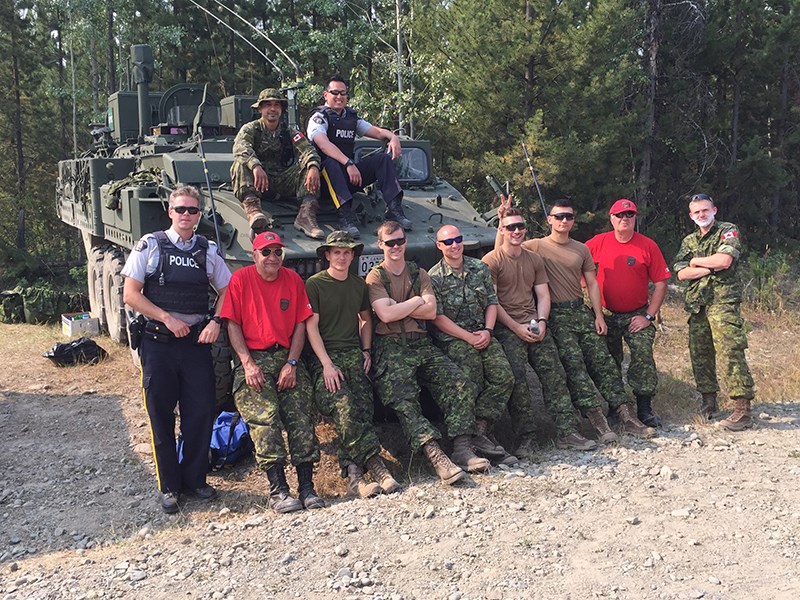All seven members of Powell River’s Canadian Ranger Patrol Group have returned from assisting in efforts to battle wildfires in BC’s interior over the summer.
Jeannie Keays, Peter Harvey, Clive Openshaw, Steven Wasp, Terry Munday, Ifti Gehlen and Richard Becker were deployed in July when Canadian Armed Forces responded to the fires with Operation LENTUS, an emergency contingency plan to support disaster assistance efforts that began on July 9.
Rangers were called upon to assist the army and deployed within days. Their role was to join regular forces and RCMP at observation and reporting points where Rangers made sure people who were authorized to enter an evacuation area came back out again.
Rangers from Powell River were based out of Williams Lake, one of the first and hardest hit regions during the wildfire season.
Keays arrived within days of the military responding with Operation LENTUS.
“When I first showed up, Williams Lake was a ghost town,” said Keays. “There was nobody there except for the RCMP, the military and Rangers.”
Harvey, a master corporal, spent much of his two 14-day tours along an evacuation route to and from Bella Coola on BC Highway 20, an area sparsely populated with first nations’ villages.
He said at some of the more remote checkpoints where he was posted, some homes were left untouched beside others that had burned to the ground and left with only chimneys standing.
“What I remember is the image of an untouched house being next to a house that was totally gone,” said Harvey. “What do you call that? The capriciousness of mother nature? Luck?”
For Openshaw, the interior tour was his first call on an actual deployment. He said he did not go into any wildly or madly exciting areas.
“We did have to be aware of our surroundings,” said Openshaw. “At a few of the positions I was assigned to we were told we might have 10 or 15 minutes to move.”
Openshaw said he was initially assigned 30 kilometers out of cell phone range, without radio contact, at a place called Deadman’s Creek. It was a long way from anywhere, he added.
“Where I was the areas had been cleared out and there were very few people around,” said Openshaw. “At some of the other posts people were bringing us cakes and cookies. Some of the Rangers actually gained weight.”
All the Rangers experienced appreciation from area residents.
According to Harvey, friendly interactions between Rangers and locals were commonplace.
“We had to be in uniform anytime we were in town and people said, ‘Thanks for doing what you guys are doing,’” said Harvey.
Rangers volunteer their time to assist and, while the wildfires were a huge tragedy, after a month in the interior amid nature’s destruction Keays said she was left with the experience of witnessing the spirit of people.
“I saw all of these people from all over the place coming together and helping each other out,” she said. “That restored my faith in humanity.”



